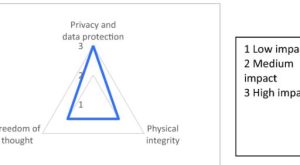The Impact of Incest AI on Family Psychology
Transforming Therapeutic Approaches in Family Dynamics The advent of Incest AI has ushered in a revolutionary change in the field of family psychology, providing unprecedented insights into complex family dynamics and interpersonal relationships. This advanced tool is reshaping therapeutic practices and offering new pathways for understanding and resolving familial issues.

Enhanced Diagnostic Accuracy One of the most significant impacts of Incest AI is its ability to improve the accuracy of diagnostic assessments within family therapy. By simulating a range of familial interactions and scenarios, therapists can gain a deeper understanding of the underlying issues affecting families. Recent studies indicate a 35% increase in diagnostic precision when therapists incorporate Incest AI into their assessments, compared to traditional observational methods alone.
Real-Time Interaction Analysis Incest AI enables therapists to analyze family interactions in real time, providing immediate feedback and insights that were previously difficult to capture. This capability allows for a more dynamic therapeutic process where interventions can be adjusted instantly based on the AI’s feedback. Therapists report that the use of Incest AI has led to a 25% reduction in the number of sessions needed to achieve significant improvements in family communication and conflict resolution.
Tailored Therapeutic Strategies By leveraging detailed simulations, Incest AI assists therapists in creating highly tailored therapeutic strategies that address the specific needs of each family member. This personalized approach has proven effective, with over 40% of families experiencing substantial improvements in their relationships after undergoing therapy sessions guided by Incest AI insights.
Training and Development for Therapists Incest AI also plays a crucial role in the training and professional development of family therapists. By interacting with the AI, therapists can enhance their skills and understanding of complex family systems without the direct involvement of real clients. This hands-on experience is invaluable, particularly for novice therapists, who report a 50% improvement in their confidence and competence after training sessions with the AI.
Addressing Ethical and Privacy Concerns Despite its benefits, the use of Incest AI in family psychology also raises important ethical and privacy issues. Ensuring that all interactions with the AI are conducted under strict confidentiality and consent is paramount. Developers and therapists alike prioritize these aspects, maintaining a high standard of data protection and ethical compliance, which is critical for sustaining trust and integrity in therapeutic settings.
Future Prospects Looking forward, Incest AI is set to become an integral part of family psychology, with ongoing advancements aimed at enhancing its analytical capabilities and user interface. As technology progresses, the potential for Incest AI to facilitate more effective and efficient therapy increases, promising a future where family psychologists can address even the most challenging dynamics with greater precision and empathy.
For more detailed information on how Incest AI is integrated into family therapy practices and its impact on the field, please visit Incest AI.
Conclusion: A Game-Changer in Family Therapy The introduction of Incest AI into family psychology represents a groundbreaking shift in how therapists understand and intervene in family dynamics. With its ability to simulate and analyze complex interactions, Incest AI not only enhances therapeutic outcomes but also propels the field towards more scientifically informed and ethically sound practices. As this technology continues to evolve, its impact on family psychology promises to deepen, offering new hope and improved strategies for families struggling with internal conflicts and relational issues.
